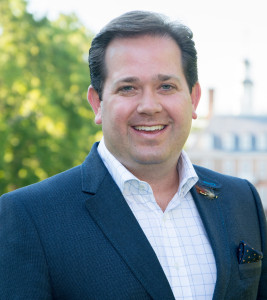The progress made in American history and cultivation for the advancement of free and open thinking exists as one of the primary and closely valued principles upon which our nation was founded. The fight for religious liberty is inextricably linked to the cause of the American Revolution and enduring legacy among Baptists dating back to the 16th century. While many regard Locke as having initially influenced the idea of religious liberty, BJC Executive Director Brent Walker pointed out during one of his lectures the influence Roger Williams, one of our Baptist forerunners, had in initially casting light on the topic of religious liberty, thus predating Locke’s often regarded seminal thinking on the topic of religious freedom.
In 1797, Washington remarked that, “Religion and morality are two essential pillars to civil society.” Though there are arguably many great qualities that make up a wonderful national identity, it was religion and morality that served as two unique drivers of American exceptionalism. Although divided in many respects, the dominating perspective remained that if America was to embrace democratic ideals fostering a free and independent nation, the challenge of religious liberty was to be addressed – thus eventually leading to a First Amendment right protecting the free exercise of and prohibiting establishment of religion in America.
A particular quote which resonated with me came from Thomas Jefferson, who said that “whenever people of reason gather together to discuss religion they will find more to agree upon than they ever find to disagree over.” One of the compelling reasons I applied for this program was to explore the unifying qualities of our denomination that often get lost in the cacophony of opinions that have created division and much angst among incredible Christian leaders spanning both sides of the proverbial aisle. Baptists have always been their best when embracing the unifying distinctive of religious liberty for all – historically making us an incredibly powerful denomination inspiring humanity by our belief that we are inherently designed and endowed by God to be free.
As I seek to exploit advocacy opportunities for religious freedom within my sphere of influence, I will do so out of a better understanding and necessity rooted in the knowledge that the condition of humanity, nature of God, and imperative of our faith support the effort. I will embrace the convictions long held by Baptists to support and promote soul freedom from the pulpits in which I preach, classes that I teach, and writings I publish. And, perhaps most importantly, through the lives I have been entrusted to disciple: family, friends, and students.
During the BJC Fellows Seminar, I truly discovered what Jefferson admonished in gathering with people of reason to discuss religion holding diverse beliefs and opinions. It was encouraging to see that our group had more to agree over than disagree upon throughout our conversations. The joy of experiencing new friendships with Christians of different backgrounds was stimulating and gratifying. Secondly, the opportunities to engage in thoughtful dialogue from a scholarly perspective strengthened my advocacy of religious liberty. Visiting with Professor Michael Meyerson was a delight – I have yet to read a more balanced argument for the historic foundations and perspectives of the Framers’ views regarding religious freedom in America in Meyerson’s book, Endowed by our Creator. To discourse on a polarizing topic from an academic perspective was invigorating. Finally, the few opportunities of solitude during the fellowship provided rejuvenating spiritual occasions to discern from God the significance of our ability to exercise soul freedom. Not just in private, but in a very respectful and public manner. To lead is to influence, and we are all conditioned by our faith. Therefore, whatever one’s faith, it will precede and condition a deeper understanding of the world in which we live and how we should act in it.
Read other reflections from BJC Fellows and visit BJConline.org/Fellows for more on the program.





